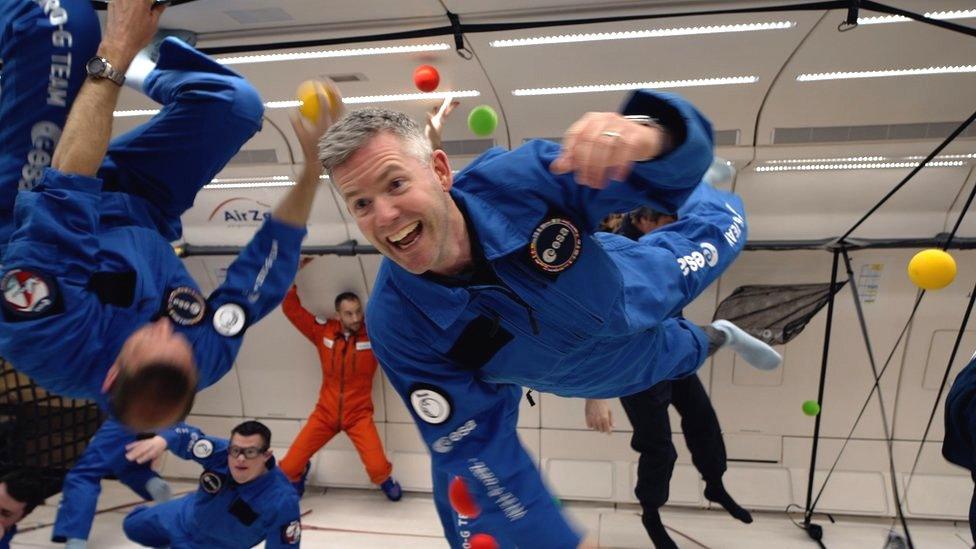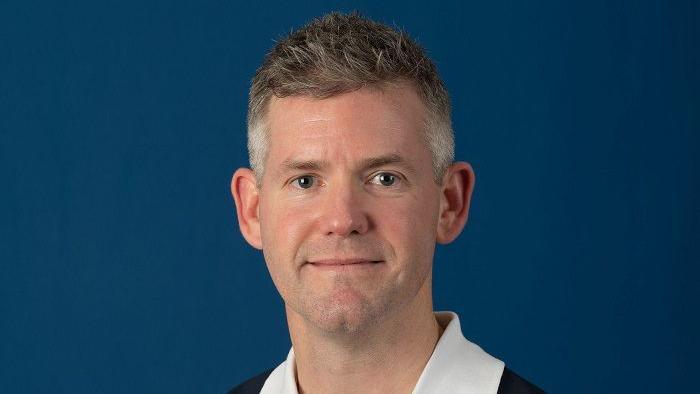Lift off for Paralympian's astronaut dream
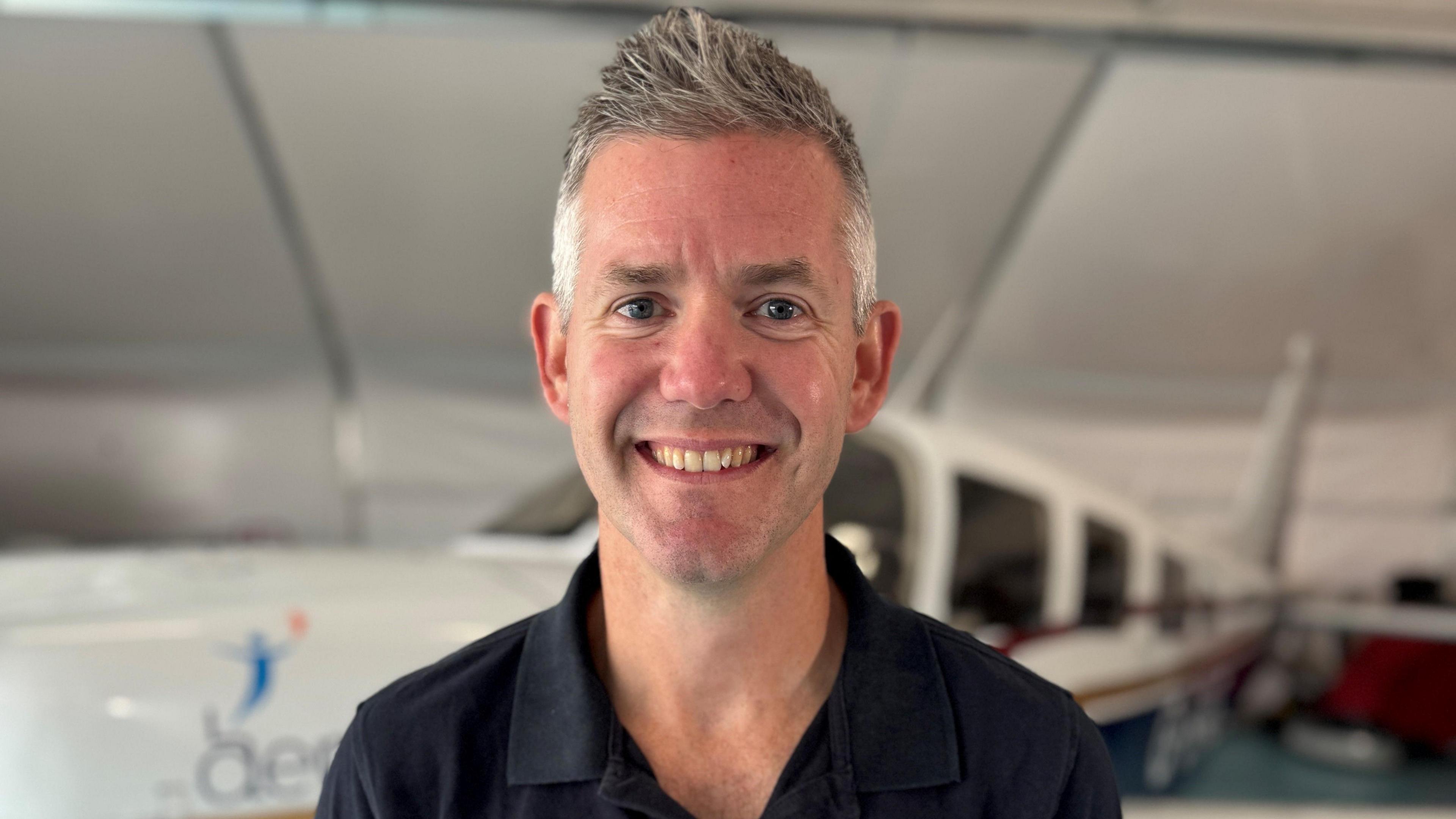
John McFall spent the last three years undergoing specialist training
- Published
Winning a medal at the Paralympics puts someone in an elite club, while travelling into space gives them membership to an even more exclusive group. But now one man is now aiming to become the first to join both.
John McFall won bronze at the 2008 Beijing games, has worked as an orthopaedic surgeon across Hampshire and Surrey, and is now training to become the first amputee astronaut.
The 44-year-old, from Fleet, spent the last three years undergoing specialist training - and is now eligible to take part in future missions.
Talking to the BBC, he said when he was young he "never actually dreamt of being an astronaut".
"I don't fit that typical picture of what we all grew up thinking that astronauts look like - I think that's quite important," he said.
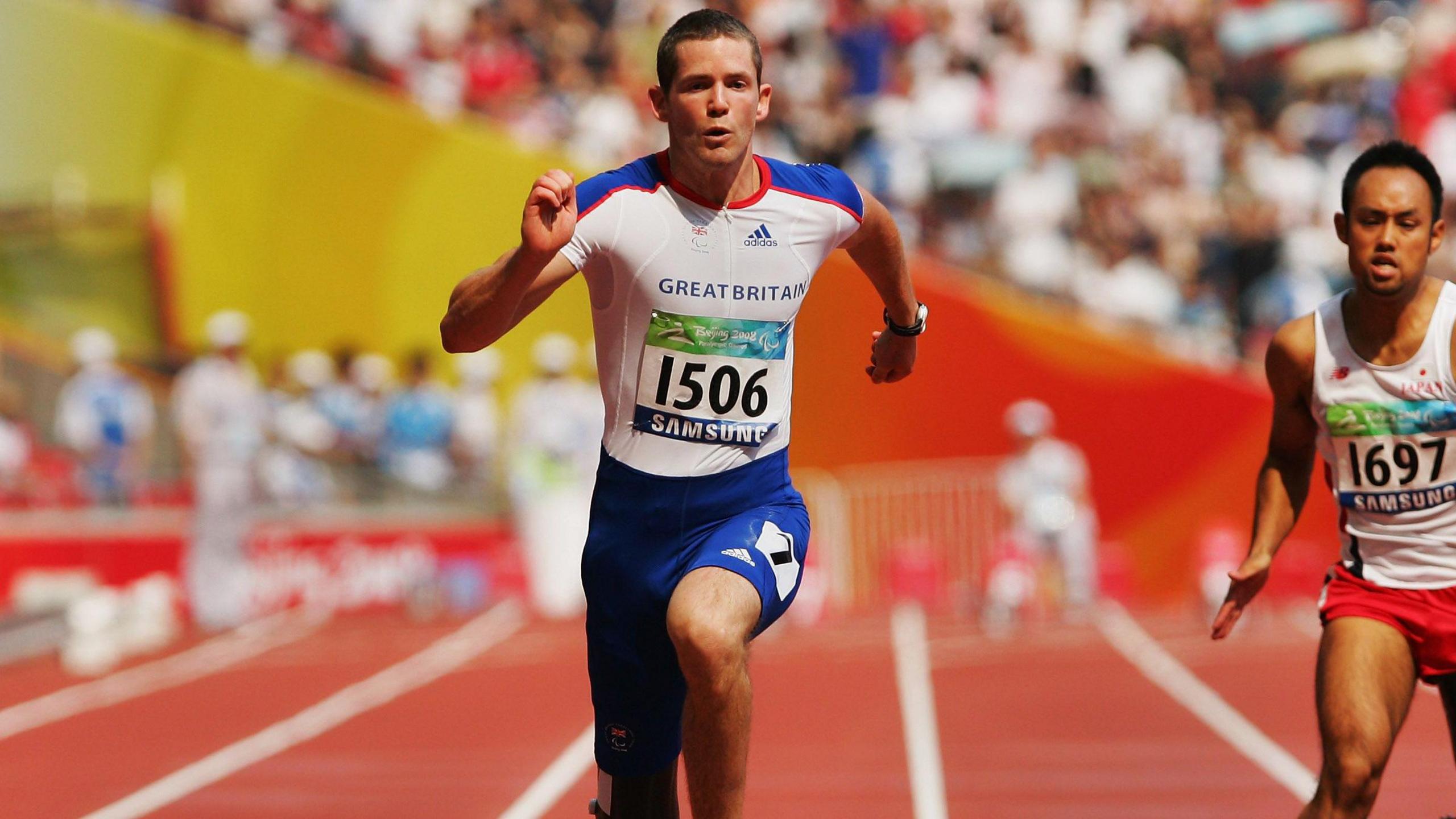
He won Bronze at the 2008 Paralympics
McFall lost his leg at the age of 19, before going on to compete for ParalympicsGB as a sprinter.
But 17 years on from reaching a Paralympic podium, he has set his sights skywards.
"It's really exciting for me, but it's also really exciting for human space flight in general," he said.
"It really represents this change in mindset that actually, astronauts don't have to look like this typical perfect able-bodied individual."
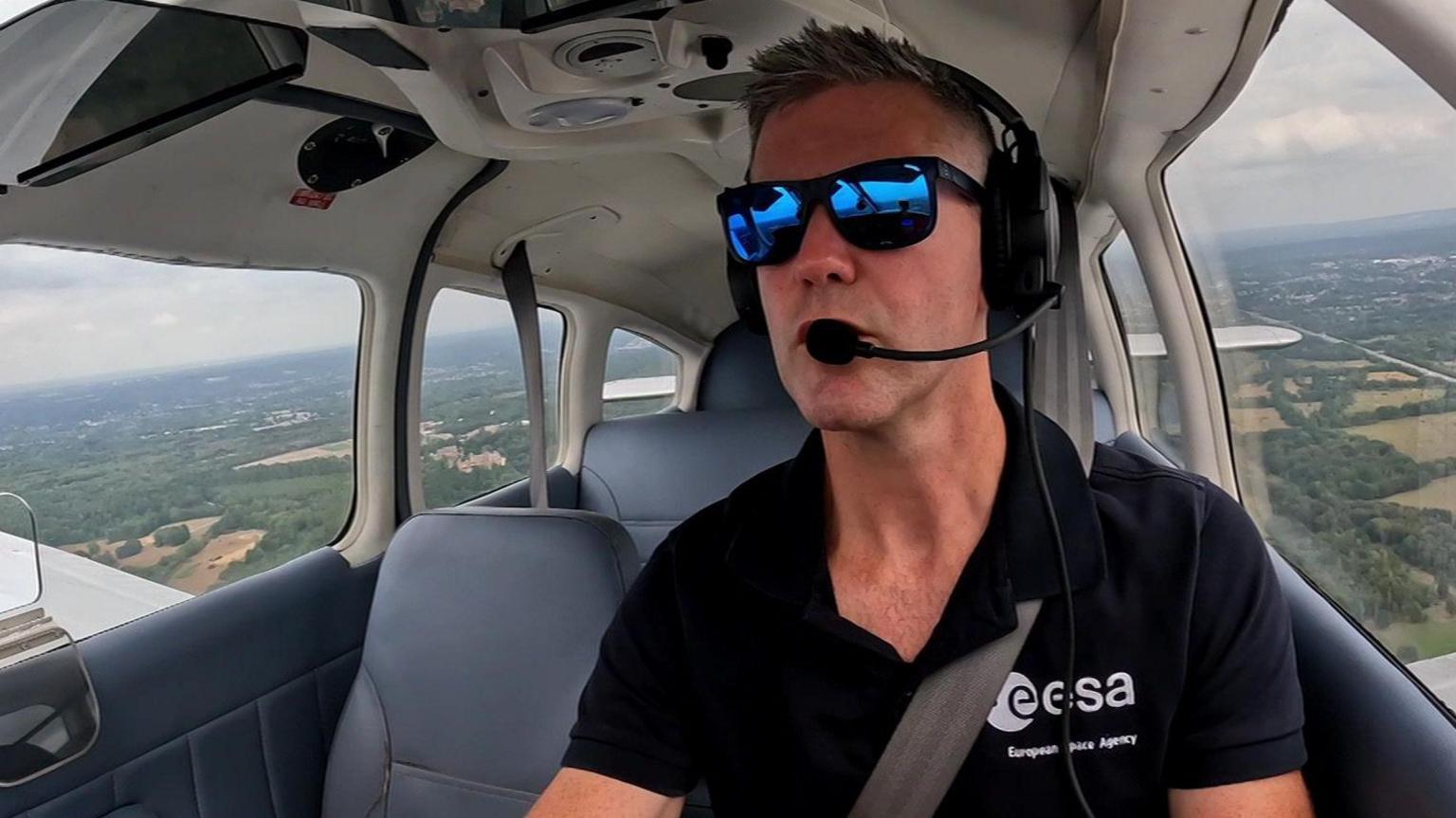
McFall said flying light aircraft required similar skills as being an astronaut
He has received help in his endeavour from the charity Aerobility - based at Blackbushe Airport - which helps disabled people fly an aeroplane.
"Being able to fly light aircraft, the skills associated with that, there is a huge amount of crossover with those skills and living and working as an astronaut," he said.
"Uniquely, Aerobility provides a fantastic platform for me to be able to do that."
Watch: John McFall explains how his prosthetic leg works in a weightless environment
With support from the Oxfordshire-based UK Space Agency, McFall spent much of the past three years training at the European Astronaut Centre in Cologne, Germany.
Earlier this year, he was deemed medically fit enough to become the first astronaut with a prosthetic limb in space.
"The dream is to fly to space, and I would love that opportunity," he said.
"This is about so many aspects of life, so many people in so many different roles where people think they are just associated with able-bodied people, and that's not the case."
Get in touch
Do you have a story BBC Hampshire & Isle of Wight should cover?
You can follow BBC Hampshire & Isle of Wight on Facebook, external, X (Twitter), external, or Instagram, external.
Related topics
- Published9 May 2024
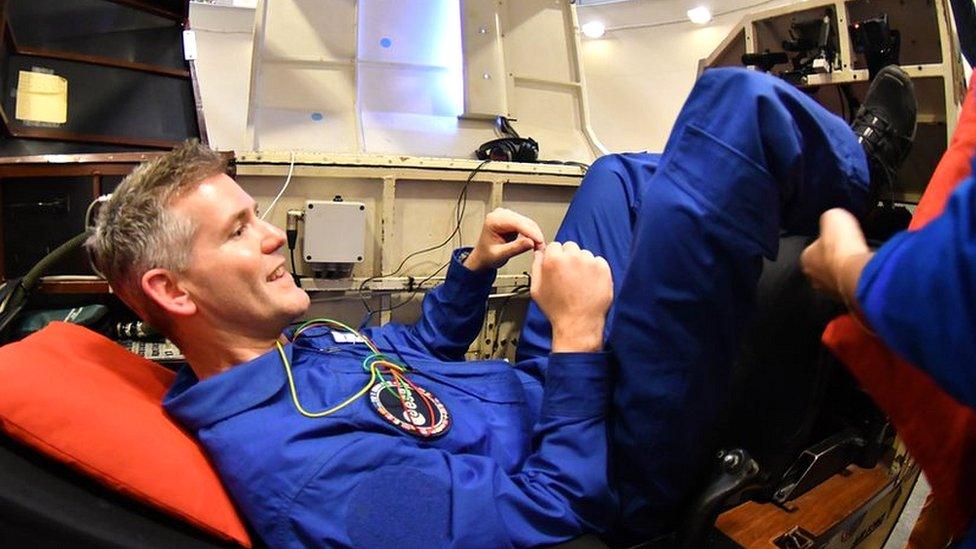
- Published28 April 2023
